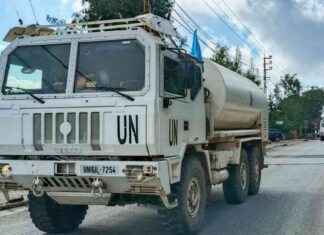The history of Europe was forged in crises. Whenever Europe has faced a crucial test in recent history, we have responded by moving closer together. This fundamental understanding has enabled us to weather the worst of the storms and enabled our institutions to address people’s concerns – and make a tangible difference in people’s lives.
In the common understanding of Europe, cooperation is consistently placed above competition. In this way we have created prosperity, strong democracies and an ironclad protection of personal liberties. In the last few years alone we have faced bank failures, sovereign debt crises, migratory pressures and a global pandemic like we have never seen before. All of these events have brought Europe closer together and we have come out stronger.
That foundation, that unity, is now being tested again in the face of a veritable storm – a combination of a war on our doorstep, worrying inflation, soaring electricity and energy prices, a climate catastrophe that is drying up our rivers and burning our forests, and food insecurity.
Once again, Europe is challenged. Once again, Europe must respond. Once again we must work together. Once again, Europe must adapt. And once again the European Parliament will play its part.
It is becoming increasingly difficult to heat our homes, keep industry running or fuel our cars. Inflation keeps prices high. We know that. But that’s when the pressure is greatest, that’s when we have to stand up and stand firm like never before.
Then abstract Europe must demonstrate practical leadership – with speed, energy and courage. Europe must rise up to face these challenges. Regardless of whether it is about reducing the cost of living and electricity prices, climate change, defense, food security or supporting Ukraine – only together will we move forward.
Europe must be more. That was the clear demand made in May 2022 in the European Parliament in the conclusions of the year-long conference on the future of Europe, which was centered on citizens. On Wednesday, the President of the Commission will make proposals in her annual State of the European Union address.
For the European Parliament, these key issues raised by citizens must be at the heart of the proposals:
We must create a comprehensive security and defense union. Our security and defenses and infrastructure must be upgraded. The brutal, illegal and unjustified invasion of Ukraine has shown us just how much the world has changed since February.
We need to make better use of our defense spending and avoid duplication in a pan-European defense cooperation that complements, not competes with, NATO.
Second, we need to address Europe’s energy resilience and autonomy. We must reduce dependencies on unreliable suppliers. This is linked to immediate measures that must be taken to curb the effects of rising electricity costs. Price hikes hitting families across Europe need to be addressed urgently, also to ensure political stability. At the same time, we must continue to work towards realizing our ambitious climate goals, driving forward the energy transition and ecological change here in Europe.
Third, the pandemic has exposed shortcomings in Member States’ healthcare systems. The European Parliament calls for a “right to health” in the EU. When it comes to containing the spread of viruses or facilitating access to specialized treatments, the solution often lies in more cross-border cooperation.
This intensification of efforts comes at a price. In order to better respond to the rapidly growing difficulties, we need to modernize the EU budget. Our budget should be more resilient and flexible to deal with rapidly changing or unexpected priorities.
The coming months will be difficult, but we have already proven that with determination and determination, Europeans are very capable of defying adversity. European cooperation and integration arose from a desire for mutual solidarity to overcome the problems of the post-war period. Europe can be confident in its ability to navigate profound upheavals. It has proven its strength. Now is the hour of Europe. We can be more – together.
EU Commission President Ursula von der Leyen wants the EU to pay less for Russian gas in view of the drastic increase in energy prices. She is firmly convinced “that now is the time for a price cap on Russian pipeline gas to Europe”.
Source: WORLD








